The month of merit: Saga Dawa, celebrating Buddha’s Birth, Enlightenment and Paranirvana — be generous, moral and practice often
The month of merits for 2022 has begun! The most important day of this amazing, meritorious month, is the great Saga Dawa Duchen, which this year will be on June 14. (The month of merits, or month of Saga Dawa began May 31, 2022 and ends June 29, 2022.)
How important is Saga Dawa Duchen?
Lama Zopa Rinpoche explains, on the FPMT website:
“Saka Dawa Duchen is one of the four great holy days of the Tibetan calendar, each of which celebrates an anniversary of Shakyamuni Buddha’s display of extraordinary powerful deeds for sentient beings’ sake. On these four days, karmic results are multiplied by 100 million, as taught in the Vinaya text Treasure of Quotations and Logic.”
NOTE: This is often confused with Vesak, which is on a separate lunar calendar. Saga Dawa celebrates on the Tibetan Lunar Calendar. For more about lunar calendars, see our full feature “Clearing the Confusion on Lunar Calendars”>>
Most Important Day of the Year!
The most important month in the Tibetan lunar calendar is Saga Dawa, the 4th lunar month which runs from May 31st to June 29, with the biggest celebration on the full moon, June 14, 2022. (Full moon is also a day for taking Precepts and Medicine Buddha and Green Tara pujas)
The 15th day of this lunar month, the full moon day is called Saga Dawa Düchen (Düchen means “great occasion”) — the most important day in the Buddhist calendar, this year on June 14, 2022 (on the western solar-based calendar).
Saga Dawa Düchen commemorates the Birth, Enlightenment, and Paranirvana of our Perfect and most Supreme teacher, Buddha Shakyamuni. In other Buddhist traditions, this occasion is known as Buddha Purnima, or Buddha Day — and may be celebrated slightly earlier than Saga Dawa depending on the tradition.
From FPMT site: “Falling on June 14, 2022 for us this year, it is a day when karmic results are multiplied by 300 million times as it commemorates Shakyamuni Buddha’s three major life events.”
Taking the 8 Precepts for a day
Lama Zopa recommends taking the full 8 precepts — the precepts of a monk or nun — for the day. Traditionally, lay disciples follow five of the precepts — but for the day they take all eight. This should be done in the early morning (earlier the better!) He explains:
“Taking the eight Mahayana precepts is a way to make life meaningful, to take its essence all day and night, by taking vows,” Lama Zopa Rinpoche has taught. “It is so simple. It is just for one day. Just for one day. It makes it so easy.”
Here is a video of Lama Zopa offering the vows:
From the FPMT site: “To receive the lineage, it is necessary to repeat the words of the following prayers after Lama Zopa Rinpoche:
- Prayer for Taking the Precepts
- Commitment Prayer to Keep the Precepts
- Mantra of Pure Morality
- Prayer to Keep Pure Morality
You can certainly take the precepts simply by action and conscious decision. You don’t have to take formal precepts. Just set your mind and, for the day, ensure you do your best:
1. I undertake to abstain from causing harm and taking life of any kind
2. I undertake to abstain from taking what is not given.
3. I undertake to abstain from sexual misconduct.
4. I undertake to abstain from wrong speech: telling lies, deceiving others, manipulating others, using hurtful words.
5. I undertake to abstain from using intoxicating drinks and drugs, which lead to carelessness.
The additional precepts on Wesak and other special ceremonial days (or for non-lay practitioners all the time) are:
6. I undertake to abstain from eating at the wrong time—the correct time is after sunrise but before noon.
7. I undertake to abstain from singing, dancing, playing music, attending entertainment performances, wearing perfume, and using cosmetics and garlands or decorations.
8. I undertake to abstain from luxurious places for sitting or sleeping, and overindulging in sleep.
Please be aware that by taking the lineage of the eight Mahayana precepts from Lama Zopa Rinpoche, Rinpoche will become one of your gurus.” You can download the PDF text for recitation along with Lama Zopa here>>
Saga Dawa — Month of Merits (bumgyur Dawa)
Saga Dawa (sometimes Saka Dawa) is the “Month of Merit” where, traditionally, all of our meritorious karma is particularly fruitful. It is an especially good month to practice the three grounds of merit:
- Dana: generosity
- Sila: morality and good conduct
- Bhavana: meditation or mental development/ practice
Saga is named for a star that is prominent in this lunar month, and Dawa just means “month.” It begins May 31 (new moon) and ends June 29 (new moon) in 2022.
According to the Universal Compassion Foundation:
“Saga Dawa is the month of merits, also called bumgyur Dawa, which means “merits multiplied by a hundred thousand times.” Tibetan Buddhists worldwide make extra efforts in practicing Dharma, generosity, and compassion to accumulate greater virtuous merits and purify our negative karmas. Along with remembering Buddha and his activities, the festival’s main point is to pray.”

Saga Dawa Duchen
The most important day in the month (perhaps for the entire year, for many Buddhists) is Saga Dawa Duchen on the full moon. Duchen means “great occasion,” and this year falls on the full moon day, June 14. It is similar to Vesak in Theravadin Buddhism — celebrating the birth, Enlightenment and Paranirvana of Shakyamuni Buddha, but is based on the Tibetan lunar calendar. Both are the “4th month” of the lunar calendars, but they are calculated differently. (See this feature on lunar confusion for clarification>>)
The day of the “Great Occasion” this year on June 14 is the best day of the entire year for “making merit” for the benefit of all sentient beings. In addition to the 8 precepts, other activities recommended include:
- Strongly recommended by Lama Zopa: do a Shakyamuni Buddha Puja. There are long and short forms of this Puja, downloadable here from FPMT>>
- Reciting the Sutra Remembering the Three Jewels [For a feature on the benefits of reciting sutra out loud, see this special story>>]
- Your regular daily practices.
- Reciting sutras, such as Vajra Cutter Sutra, Sutra of Golden Light, and Sanghata Sutra
- Reciting other prayers, such as Chanting the Names of Manjushri, and King of Prayers
- Undertaking Nyung nes
- Performing self-initiation, for those who fulfilled the necessary prerequisites (normally only for people who have completed a particular retreat protocol and fire puja.)
- Performing Lama Chopa, and at either the beginning of the practice or during the lamrim section, you can meditate on emptiness
- Reciting the names of the Thirty-Five Buddhas, with prostrations
- Reciting Vajrasattva mantras
- Reciting OṂ MAṆI PADME HŪṂ with bodhichitta
- Meditating on emptiness and dependent arising
- Meditating on bodhichitta
- Practicing tonglen
- Rejoicing
- Liberating animals
- Listening to Dharma teachings (live or online is fine). For example, His Holiness the Dalai Lama will stream a public teaching on Saga Dawa Duchen:
“Teaching in Dharamsala, HP, India
On the occasion of Buddha Shakyamuni’s Birth, Enlightenment and Parinirvana Day (sa-dhe duechen), His Holiness will give a general Buddhist teaching in the morning at the Main Tibetan Temple.”
This will likely be streamed. We’ll update with links to Youtube when available here.
Making Merit — scrubbing the negative karma away
Every meritorious act in the Holy Month is especially fruitful. Positive acts can help us “scrub the negative karma.” Traditionally, positive karma is multiplied in the month, and especially on Saga Dawa Duchen. To many practitioners, this means extra practice (Bhavana or meditation), and it is also the month to be extra careful of Sila (morality). Many Buddhists become vegetarians in the Holy Month — at the very least on the day of Saga Dawa Duchen June 14).

Here are the ways to “make merit” in the meritorious month of Saga Dawa:
- Observe all the precepts: not to kill, steal, misuse sex, lie, and abuse intoxicants (for lay followers)
- Do extra personal practices, mantras, sadhanas
- Do extra Tsogs offerings, especially on the normal Tsog Days, plus Saga Dawa Duchen
- Request pujas
- Pilgrimages to sacred places
- Visit the temple or gompa or center more often.
- Venerate stupas and shrines — especially formal circumambulation (where you full-body prostrate and chant mantras as you circle)
- Dana and giving, and especially to monks and temples
- Donations to the poor, and especially look to donate to people in need on who are homeless
- Lighting butter lamps to banish the darkness
- Go vegetarian for at least, Duchen, and ideally the whole month
- Buy animals intended for slaughter and humanely release them — but it is critical to only release where it is humane: releasing a non-indigenous animal is NOT meritorious, or releasing an animal where they face peril is also a negative act or releasing an animal that was specifically caught to be released is also negative.
2 thoughts on “The month of merit: Saga Dawa, celebrating Buddha’s Birth, Enlightenment and Paranirvana — be generous, moral and practice often”
Leave a Comment
More articles by this author

Guru Rinpoche is ready to answer and grant wishes: “Repeat this prayer continuously” for the granting of wishes
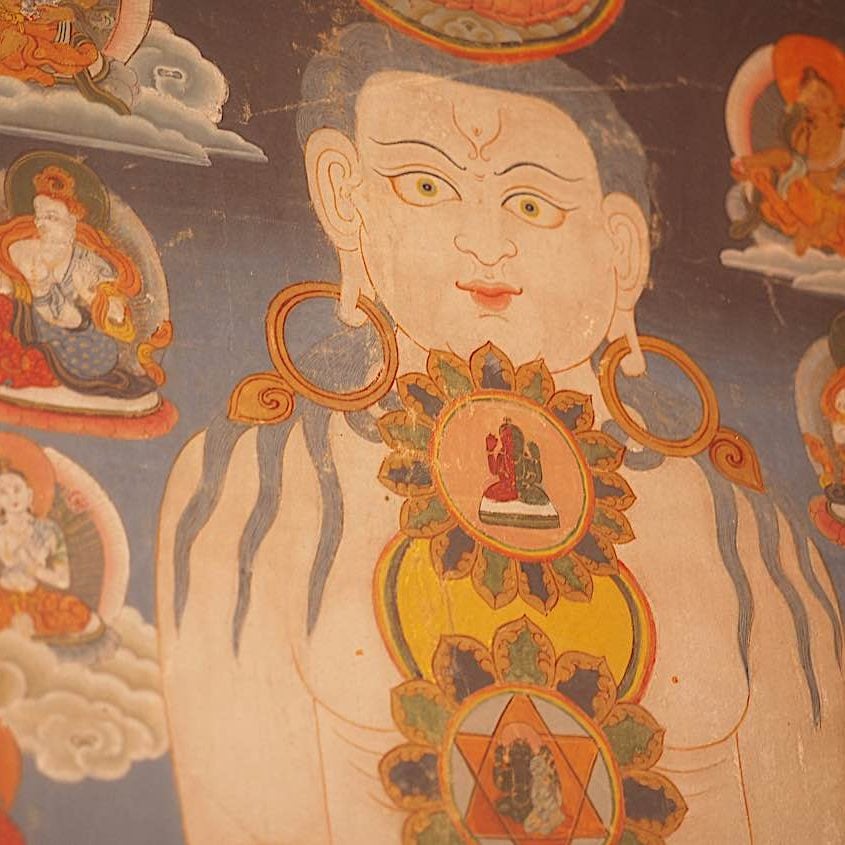
Buddhist body mandala practice in Vajrayana Buddhism — and riding the winds of the inner body “The prana goes where the mind goes.””
Search
Latest Features
Please support the "Spread the Dharma" mission as one of our heroic Dharma Supporting Members, or with a one-time donation.
Please Help Support the “Spread the Dharma” Mission!

Be a part of the noble mission as a supporting member or a patron, or a volunteer contributor of content.
The power of Dharma to help sentient beings, in part, lies in ensuring access to Buddha’s precious Dharma — the mission of Buddha Weekly. We can’t do it without you!
A non-profit association since 2007, Buddha Weekly published many feature articles, videos, and, podcasts. Please consider supporting the mission to preserve and “Spread the Dharma." Your support as either a patron or a supporting member helps defray the high costs of producing quality Dharma content. Thank you! Learn more here, or become one of our super karma heroes on Patreon.
Lee Kane
Author | Buddha Weekly
Lee Kane is the editor of Buddha Weekly, since 2007. His main focuses as a writer are mindfulness techniques, meditation, Dharma and Sutra commentaries, Buddhist practices, international perspectives and traditions, Vajrayana, Mahayana, Zen. He also covers various events.
Lee also contributes as a writer to various other online magazines and blogs.




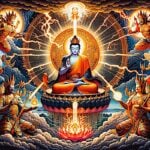

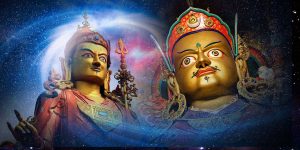




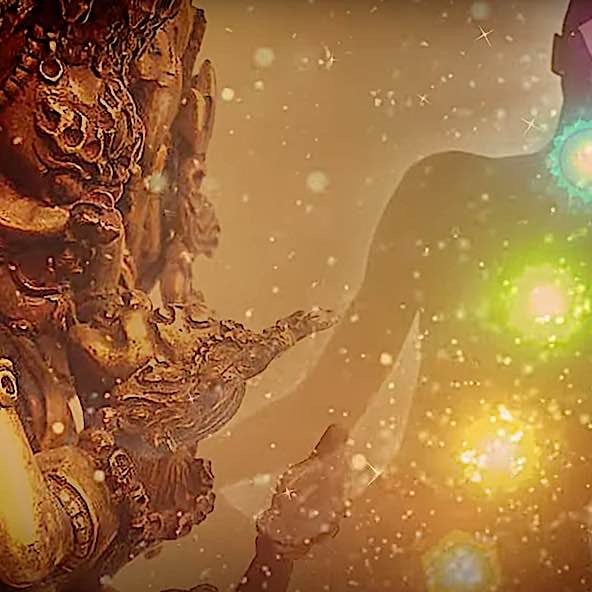
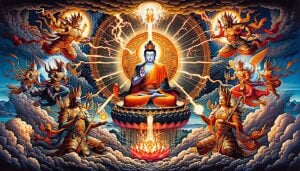



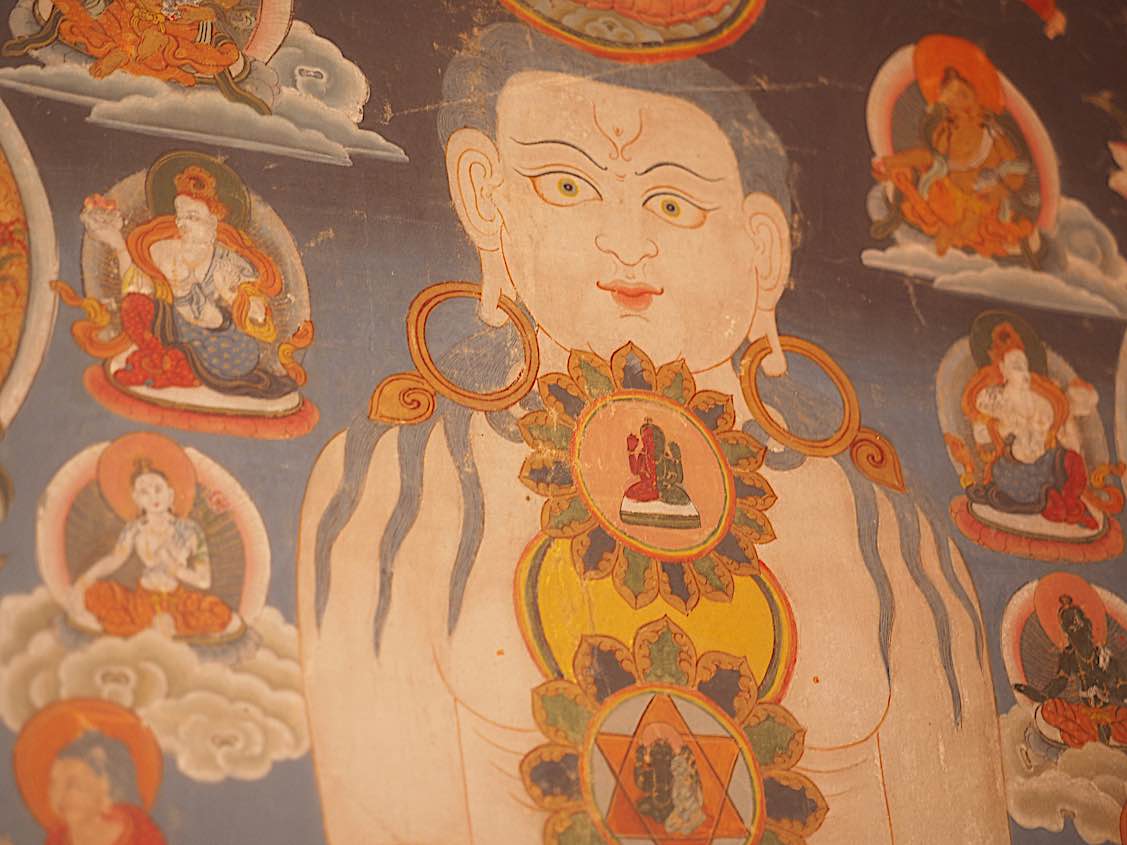
I have question on why merits can be “multiplied” during this particular month. Some even promoted it can be multiplied by ten of thousand to millions and billions. But I can’t find any reference in any sutras. Any insight will be helpful. Thanks.
The language of millions or billions are typically translation issues — usually, it implies “significantly”. It is taught in the Vinaya text “Treasure of Quotations and Logic” and his consistently mentioned elsewhere. Of course, there is merit to honoring The Three Jewels on Sacred Days. Our own mindstreams recognize the positive karmic imprint of positive actions on these days. The “merit multiplied’ may be considered skillful means (easiest way to convey the concept) or literal — in the ultimate sense it’s the same thing. The bottom line, is we imprint positive merits and karmas on our own mindstreams through meritorious actions — and among the most meritorious activities of all is honouring the Three jewels. On sacred days, if we honor the precepts, we create positive imprints. Of course, the ultimate goal is to always honor the eight precepts or, at least, the five lay precepts — that’s what I mean by skillful. It’s great to be “vegetarian” all the time, but if you can’t, then it’s still helpful to be vegetarian during the Sacred Days. It’s meritorious to practice Refuge daily, but if you can’t form the positive habit, at least do it during the sacred days. Here’s a page on the Practice of Merit Multiplying by Lama Zopa: https://fpmt.org/teachers/zopa/advice/practice-on-merit-multiplying-days-and-eclipses/